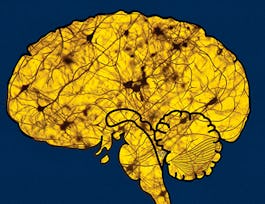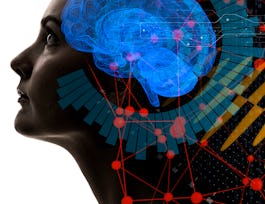This course is geared towards starting undergraduate students. A solid background in biology will be helpful but not absolutely essential. The material will be of interest to those who are pursuing a career in any of the life sciences as well as anyone who has run up against their biological clock.


Circadian clocks: how rhythms structure life
Taught in English
Some content may not be translated
13,918 already enrolled
(206 reviews)
Details to know

Add to your LinkedIn profile
9 quizzes
See how employees at top companies are mastering in-demand skills


Earn a career certificate
Add this credential to your LinkedIn profile, resume, or CV
Share it on social media and in your performance review

There are 6 modules in this course
Introduction to 'chronobiology'. What sorts of rhythms are observed in nature? Most of the lecture will be spent on describing daily or circadian rhythms in organisms from bacteria to man.
What's included
9 videos1 reading2 quizzes
Circadian rhythms synchronise to the 24-hour environment. Organisms use specialised photoreceptors to do this and they display characteristic properties in this process. We experience this active synchronisation process for example when we suffer from jet lag!
What's included
5 videos3 readings1 quiz
We will discuss the elaborate molecular mechanisms that allow circadian clocks to produce their daily rhythms and to synchronise them to its environment. We will compare these mechanisms in a wide range of organisms.
What's included
8 videos1 reading1 quiz
Circadian clocks serve to orchestrate physiology and metabolism in a coordinated way over the course of the day. Therefore, practically all processes in an organism are regulated outputs of the clock. We'll discuss examples of these processes and ideas about how this circadian regulation works.
What's included
8 videos1 reading1 quiz
With the appreciation of the clock’s global control, we proceed to discussing how much this temporal programme controls our lives from birth to death and how much we mistreat the circadian clock in modern life.
What's included
6 videos1 reading1 quiz
Finally, we will look at the clock’s relationship to pathology. What are the consequences of living against the clock, what happens if the clock ‘breaks’, and how can we use our knowledge about the circadian system in medical diagnosis and therapy.
What's included
11 videos3 quizzes1 peer review
Instructors


Recommended if you're interested in Basic Science

University of Michigan

Coursera Instructor Network

Emory University

University of Illinois at Urbana-Champaign
Why people choose Coursera for their career




Learner reviews
Showing 3 of 206
206 reviews
- 5 stars
84.95%
- 4 stars
11.65%
- 3 stars
2.42%
- 2 stars
0%
- 1 star
0.97%
New to Basic Science? Start here.

Open new doors with Coursera Plus
Unlimited access to 7,000+ world-class courses, hands-on projects, and job-ready certificate programs - all included in your subscription
Advance your career with an online degree
Earn a degree from world-class universities - 100% online
Join over 3,400 global companies that choose Coursera for Business
Upskill your employees to excel in the digital economy
Frequently asked questions
Access to lectures and assignments depends on your type of enrollment. If you take a course in audit mode, you will be able to see most course materials for free. To access graded assignments and to earn a Certificate, you will need to purchase the Certificate experience, during or after your audit. If you don't see the audit option:
The course may not offer an audit option. You can try a Free Trial instead, or apply for Financial Aid.
The course may offer 'Full Course, No Certificate' instead. This option lets you see all course materials, submit required assessments, and get a final grade. This also means that you will not be able to purchase a Certificate experience.
When you purchase a Certificate you get access to all course materials, including graded assignments. Upon completing the course, your electronic Certificate will be added to your Accomplishments page - from there, you can print your Certificate or add it to your LinkedIn profile. If you only want to read and view the course content, you can audit the course for free.
You will be eligible for a full refund until two weeks after your payment date, or (for courses that have just launched) until two weeks after the first session of the course begins, whichever is later. You cannot receive a refund once you’ve earned a Course Certificate, even if you complete the course within the two-week refund period. See our full refund policy.

